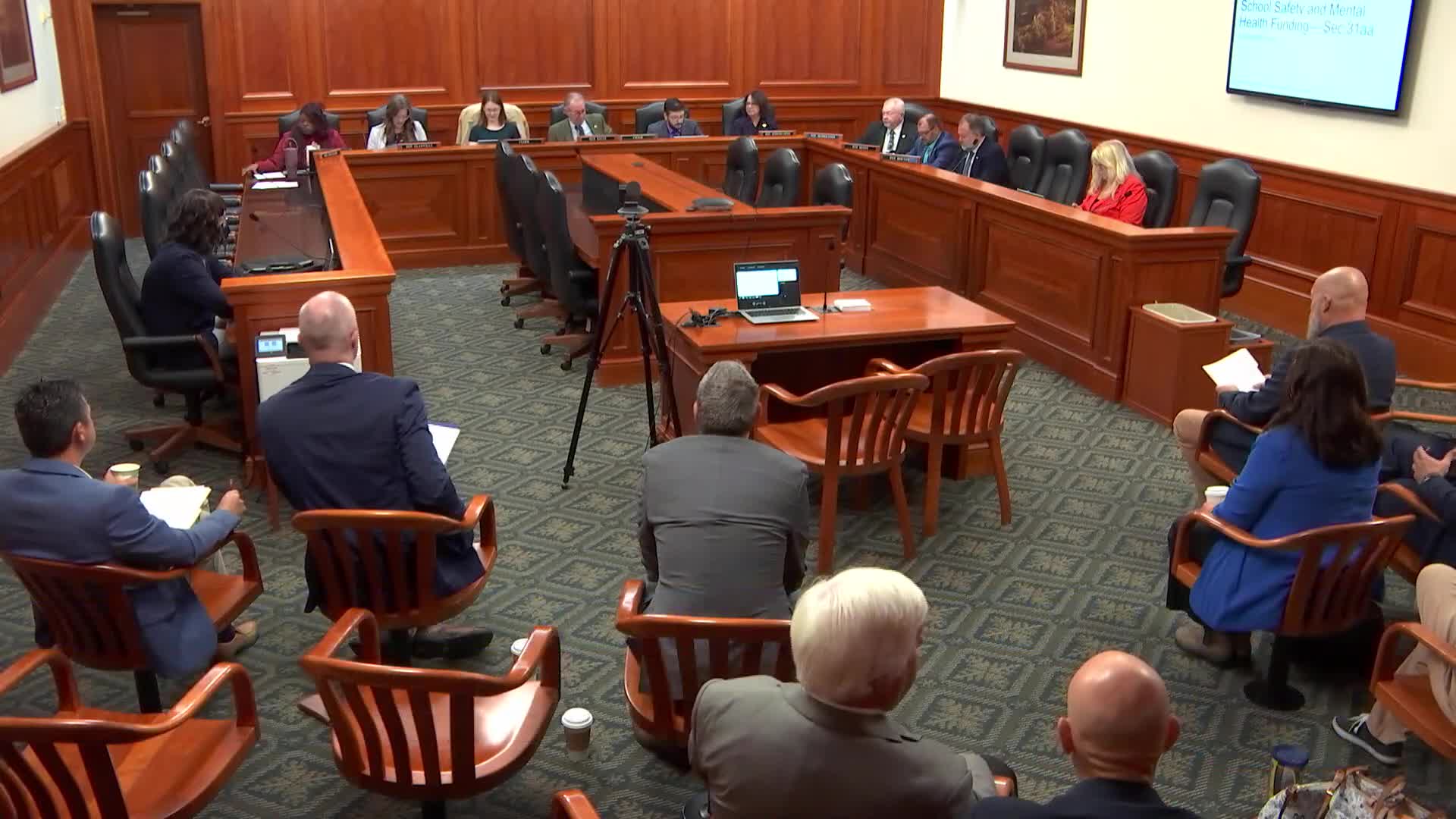Michigan superintendents tell House subcommittee delays and grant rules push dollars and time away from classrooms
Get AI-powered insights, summaries, and transcripts
Subscribe
Summary
Superintendents from small and rural districts told the House appropriation subcommittee that late state aid, shifting grant rules and overlapping reporting requirements force local staff to spend time on paperwork and delay services for students.
The House appropriations subcommittee on school aid approved its June 11 minutes by unanimous consent and heard more than three hours of testimony from superintendents and school leaders on Wednesday about how state budget timing, grant design and duplicative reporting affect district operations.
Superintendents said late or changing guidance on competitive grants, overlapping personnel reports and new or retargeted categorical rules reduce time and funds available for direct student services and planning. Patrick O'Rourke, superintendent of Fowler Public Schools, said the district spent months adjusting after literacy grant guidance arrived after his application and payments were delayed into the next fiscal cycle.
“The application didn't come out till January. It was due in February. Then updated guidance came in March, and a memo in May said the dollars would be delayed until June 20,” O'Rourke said. “That puts us in a real bad spot when you have expenditures that don't match revenues.”
Why it matters: Small and rural districts told lawmakers the administrative cost of complying with shifting grant rules and duplicate state reports takes staff away from classrooms. That can delay purchases of curriculum, professional development and hires such as counselors or bus drivers, speakers said.
What superintendents described
- Competitive grants and timing: O'Rourke said the district qualified for 35j literacy funding, but the application and guidance arrived late and payments intended for the school year were delayed into the next fiscal cycle. He said staggered or partial payments (for example, one year at 50 percent and the next at 50 percent) make it impractical to buy and implement full curricula.
- Fiscal complexity: O'Rourke described handling more than 900 accounting lines in a small district and said grant coding often changes after budgets are submitted, forcing rework.
- Duplicate reporting: Superintendents described overlapping state systems—REP (Registry of Educational Personnel) run through CEPI and the MSDS personnel reporting—requiring similar data in different coding systems. “The amount of time we waste making sure this code is actually what they're asking for here is absolutely astronomical,” O'Rourke said.
- Data and assessment: Katie Zunikas Makowski, superintendent at Johansburg Lewiston Area Schools, urged shifting from one-time statewide tests to actionable benchmark data that teachers can use during the year. She said benchmark assessments and nationally normed tools such as NWEA provide growth data teachers can act on, while a one-day M-STEP snapshot gives limited instructional guidance.
- Categoricals versus formulaic funding: Speakers debated whether some state categorical funds should be rolled into a formula. Zunikas Makowski said categoricals such as transportation and at-risk funding level differences between districts. O'Rourke and others urged making some high-priority programs formulaic to reduce application and reporting burdens.
- Local flexibility: Small districts asked for the ability to direct funds based on local needs, noting differences between rural and suburban resource requirements. O'Rourke said local leaders need “a seat at the table” to make funding decisions that reflect community needs.
Quantities and examples provided in testimony
- Fowler Public Schools: about 450 students (FTE) and roughly 900 accounting lines to manage; full school bus load described as 70 to 75 students, typical less-full buses 40 to 45 students. - Staffing time: O'Rourke estimated at least 25 percent of his time is spent on compliance and state reporting; he estimated his business manager worked roughly 55 hours a week and spent about 30 of those hours communicating with the Michigan Department of Education (MDE) in a recent week. - Bus costs: Superintendents said a new bus costs about $130,000; Langsbury Community Schools reported a 13-bus fleet as an example.
Committee discussion and suggestions
Representatives pressed for possible solutions, including aligning state fiscal timelines with the school year, creating multi-year predictable funding, and converting some competitive grants to formula or categorical funding. Representative Glanville and other members invited superintendents to work with legislators and MDE on streamlining reporting and defining which categoricals, if any, could be rolled into a foundation allowance or multi-year plan.
Formal actions at the meeting
The subcommittee approved the minutes of its June 11, 2025, meeting by unanimous consent after Representative Jenkins Arnold moved to approve. At adjournment, Representative Borton moved to excuse absent members; that motion also prevailed by unanimous consent.
What lawmakers may do next
Superintendents asked for ongoing consultation with legislators and MDE, multi-year grant and budget plans, and simplification of reporting requirements so dollars and staff time are closer to students. Several committee members said this session should be the start of continued work.
Ending: The subcommittee heard multiple superintendents offer to return for follow-ups and to help detail which categoricals could be combined without harming equity; the committee adjourned after excusing absent members by unanimous consent.
